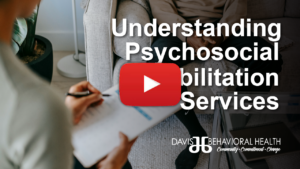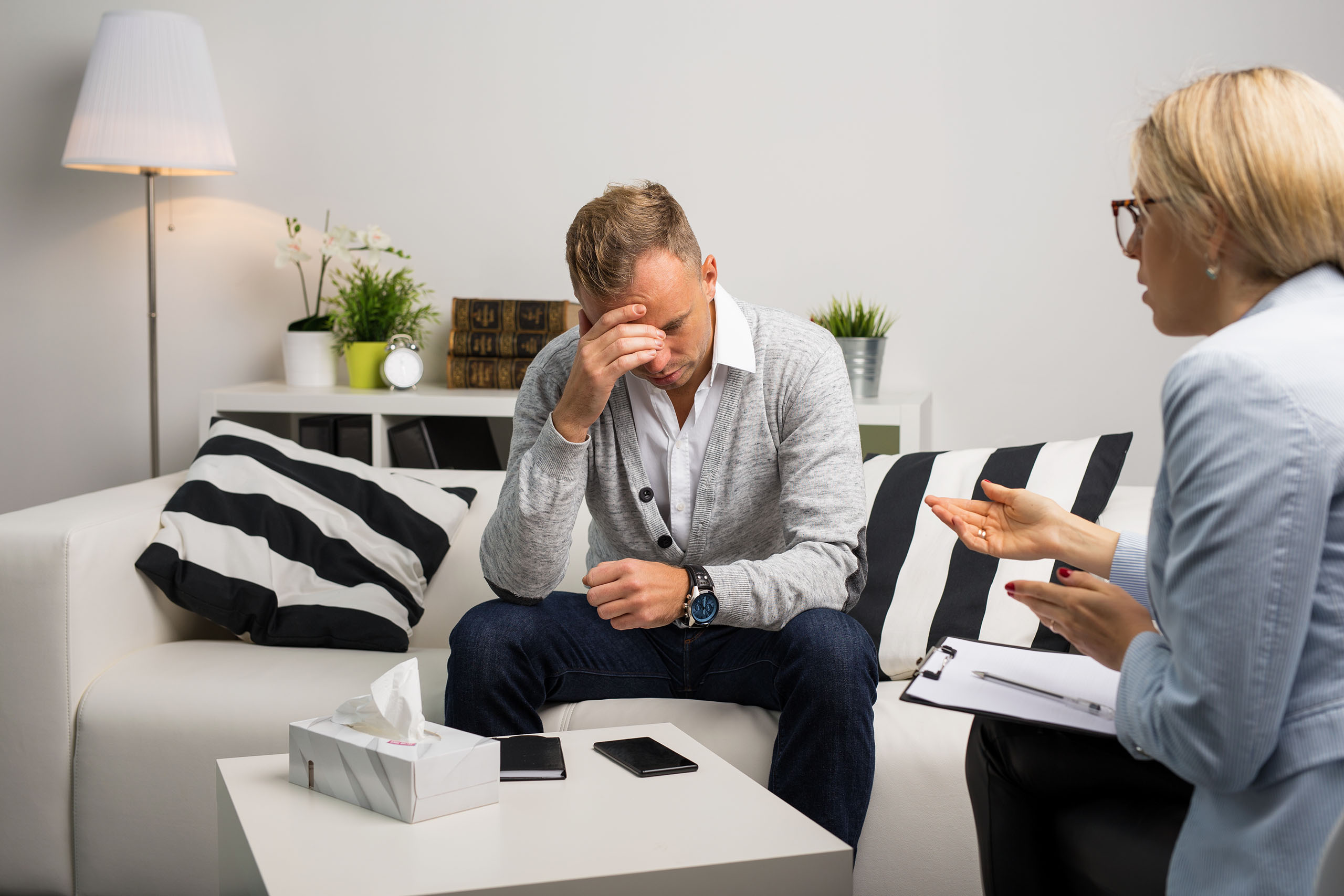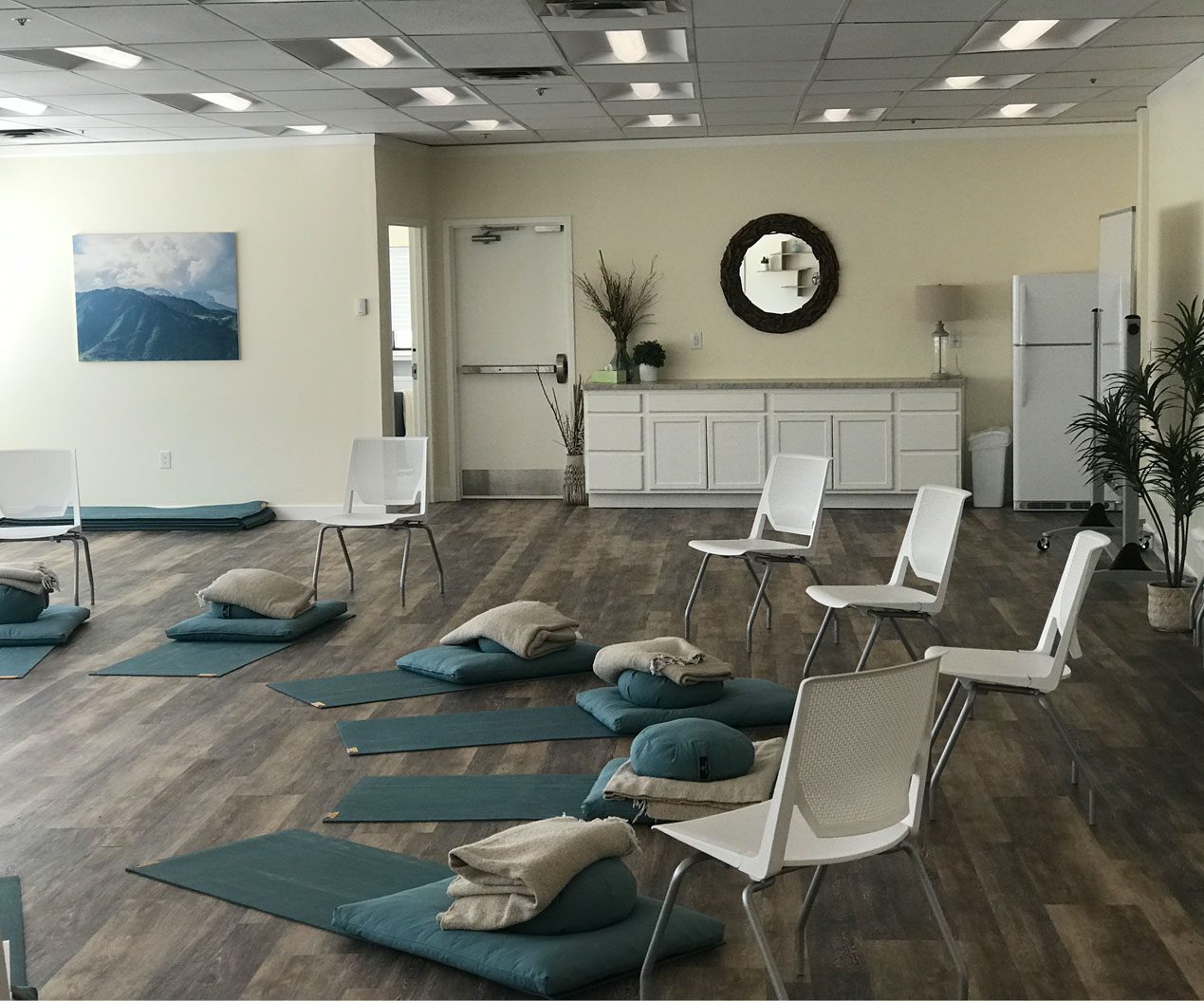People who live with mental illness often require help in most aspects of their lives, which may include employment, relationships, education and home life. While treating the symptoms of mental illness is essential to a person’s mental wellbeing, assistance with other parts of life that may be challenging can help make sticking with treatment and finding independence possible. We’ll go into detail about the benefits of psychosocial rehabilitation services.
Psychosocial rehabilitation is an approach that is designed to give support to those struggling with the impact of mental illness in their lives. Here at Davis Behavioral Health, we offer psychosocial rehabilitation services to clients at our Journey House. This facility is home to this evidence-based program that gives participants the opportunities to pursue their personal recovery goals through skills development that encompasses all aspects of a person’s life. Want to know more about psychosocial rehabilitation and if it’s right for you or a loved one? This overview can help.
What Is Psychosocial Rehabilitation?

Unfortunately, there continues to be a stigma attached to mental illness, and those living with mental conditions are often treated as permanently disabled. As such, some view medication as the only option for treating mental illnesses. While medication is an important tool for the treatment of mental illness, other tools are necessary to help those living with mental illness find success and fulfilment as members of their communities.
The basic psychosocial rehabilitation meaning is “the process that facilitates opportunities for persons with chronic mental illness to reach their optimal level of independent functioning in society and for improving their quality of life” according to the National Institutes of Health. With this definition in mind, let’s look deeper into the history and principles of the practice.
History of Psychosocial Rehabilitation
In the not-too-distant past, many people with mental illness were institutionalized and not allowed to participate in society. There was less focus on recovery and more focus on keeping these individuals away from everyday life. Over time, research and mental health professionals have changed how those with mental illness are treated, focusing instead on controlling symptoms and the potential for recovery and independence. The recovery model of mental illness was developed to help those living with mental illness find growth, inclusion, empowerment and coping skills on the journey toward recovery.
Key Principles
A psychosocial rehabilitation specialist follows specific principles in their work to guide clients through the process. As psychosocial rehabilitation often includes multidisciplinary treatments, the principles follow that same whole-person approach:

- Every client’s needs are unique and different.
- There is potential in all individuals that can be developed.
- There should be an emphasis on strengths rather than weaknesses or symptoms.
- Everyone has the right to self-determination.
- A normalized environment for professional services is essential.
- Focus on the present rather than the past.
- Focus on a social model of care instead of medical.
Psychosocial rehabilitation is individualized and considers the unique needs of each client. These principles allow specialists to combine the treatment requirements of clients, which may include medication and psychotherapy in addition to social and basic living services.
What Clients Benefit From Psychosocial Rehabilitation?
Psychosocial rehabilitation is not necessary for every person with mental illness. For some individuals, therapy, medication or both can help alleviate symptoms and allow for normal societal functioning. However, rehabilitation is useful for those who may need more assistance to get back to fully functioning in society and normal quality of life. Those who may want to consider psychosocial rehabilitation include the following:
- Those who need assistance returning to full function following treatment for mental illness.
- Individuals living with a disability who need continuing help in multiple aspects of life.
- People without resources or a supportive environment in which they can achieve full rehabilitation.
- Those who are functional but need additional support or assistance in one or more aspects of life.
If you or someone you love would benefit from psychosocial rehabilitation, please reach out to Davis Behavioral Health for more information.
What Are the Goals of Psychosocial Rehabilitation?
Psychosocial rehabilitation services vary between different facilities and programs, but the goals behind the practice remain the same:
- Hope: Mental illness can leave people feeling hopeless and demoralized. Psychosocial rehabilitation provides clients with hope for their futures.
- Skills: All aspects of life require skills in order to find success. Rehabilitation includes teaching those skills so that clients can live the lives they want.
- Empowerment: Living with mental illness can leave a person feeling powerless. Psychosocial rehabilitation puts power and autonomy back into the clients’ hands so they can make their own goals and find personal success.
- Support: The process of rehabilitation requires support from mental health professionals who offer guidance and positive relationships to build from.
If a client can complete psychosocial rehabilitation having achieved the above goals, the program has been successful.
Common Activities Used in Psychosocial Rehabilitation
While the activities used in psychosocial rehabilitation will vary based on the program or facility, most utilize work, housing and relationships as the focus. Activities focusing on employment may include learning vocational skills, career planning, connecting with local employment services and transportation assistance. Individuals may learn how to write resumes or fill out job applications or how to handle a job interview.
Activities that focus on housing may include connecting clients with affordable housing options for those who do not require in-patient housing. Specialists help teach skills related to taking care of a home and basic household tasks as well.
Social skills are a big part of psychosocial rehabilitation, and that skills training can help clients improve their functioning with family members, friends and other important relationships. Activities to help build these skills often include problem-solving practices, communication skills and guidance in emotional understanding.
What Does a Psychosocial Rehabilitation Specialist Do?
A psychosocial rehabilitation specialist provides treatment for those under their care using a combination of evidence-based practices, including therapy, skills education and training, with a holistic approach to the process. In-depth training and education in the area of psychosocial rehabilitation is required for those who want to specialize in this area. Working in tandem with other providers, psychosocial rehabilitation specialists provide a safe, positive environment where clients can grow and find empowerment and hope for the future.
Psychosocial Rehabilitation From Davis Behavioral Health
Living with mental illness doesn’t have to take you out of the community. Find your voice and your place through Davis Behavioral Health’s psychosocial rehabilitation services. Contact us today for additional information.
Q&As for "What Are Psychosocial Rehabilitation Services?"
I struggle with everyday tasks due to my mental illness. Can psychosocial rehabilitation help me live more independently?
Absolutely! Psychosocial rehabilitation focuses on skills development for tasks like cooking, budgeting, and social interaction. Davis Behavioral Health’s Journey House program can empower you to achieve your independence goals. #independentliving #psychrehab
Is medication the only option for managing my mental illness? What other support is available?
While medication is crucial for some, psychosocial rehabilitation offers holistic support, including skills training, social support, and community integration. Explore options at Davis Behavioral Health’s Journey House. #mentalhealthrecovery #holisticsupport
I feel hopeless about my future due to my mental illness. Can psychosocial rehabilitation give me hope?
One of the key goals of psychosocial rehabilitation is fostering hope and empowerment. By developing skills and social connections, you can envision a brighter future. Learn more about Davis Behavioral Health’s Journey House program. #mentalhealthhope #recoveryjourney
I worry I'm "too" disabled for regular therapy. Is psychosocial rehabilitation right for me?
Psychosocial rehabilitation caters to various needs, including those requiring extra support for daily living. Individualized programs tailor to your unique abilities and goals. Contact Davis Behavioral Health for a consultation. #mentalhealthsupport #disabilitysupport
What kind of skills will I learn in psychosocial rehabilitation?
From job training to managing relationships, programs cover various areas. Davis Behavioral Health’s Journey House focuses on employment, housing, and social skills development. #lifeskills #mentalhealthsupport


